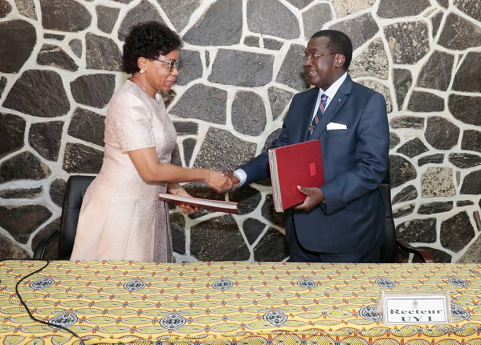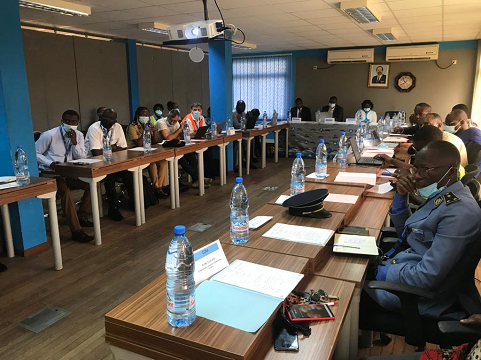Civil Engineer Technician
It difficult for a neophyte to draw a parallel between civil engineering and the aviation trades. And this apparent nativity can, if not explained, be understood. The most prominent careers in this field being the pilots, flight attendants, mechanics, etc.
However, from the construction of airport buildings right up to the pavement amongst many other tasks, civil engineering is part of the almost less obvious professions but is indispensable from the beginning to the end civil aviation.
Civil engineering covers buildings and public works (roads, large-scale infrastructure projects, airports, ports, bridges, viaducts, tunnels, etc.)
In order to practice civil engineering professions, it is necessary to undergo a training course, which depends on the basic level with which one applied for during the entrance examination into the training school.
|
Education background |
Length of study |
Certificate obtained |
Observations |
|
1. GCE O/Level |
02 years |
Technical Officer |
E.N.S.T.P Annex Buea |
|
2. GCE A/level |
02 years |
Technician |
E.N.S.T.P Annex Buea |
|
3. GCE A/level |
02 years |
Senior technician
|
E.N.S.T.P Yaounde, Private institutions
|
|
4. GCE A/level Science Series |
03 years |
Civil Engineer |
E.N.S.T.P Yaounde |
|
5. Degree Science Series |
02 years |
Civil Engineer |
E.N.S.T.P Yaounde |
|
6. Professional Degree from I.T.G.C |
03 years |
Civil engineer
|
E.N.S.T.P Yaounde |
|
7. GCE A/Level Science |
05 years |
Civil engineer
|
E.N.S.T.P Yaounde |
After having completed studies, one can exercise duties in private companies in the areas of, airport and land development fields can (company construction, technical consulting firms).
Constraints and advantages of the profession
The biggest constraint for this profession unlike others, is the dense technical responsibility for works carried out. This responsibility can be decennial for certain large-scale jobs such as civil engineering structures. However, one of the advantages is, the honour of having succeeded in achieving a visible work that will last for at least a hundred years.
The role of civil engineering in aviation:
It is limited to:
- Design,
- The contribution and monitoring of the implementation,
- Maintenance of aeronautical infrastructures.
Infrastructure here means: any building located in the airport site (air terminals, Control Tower ...), aeronautical pavement and ancillary connections (parking ...).











